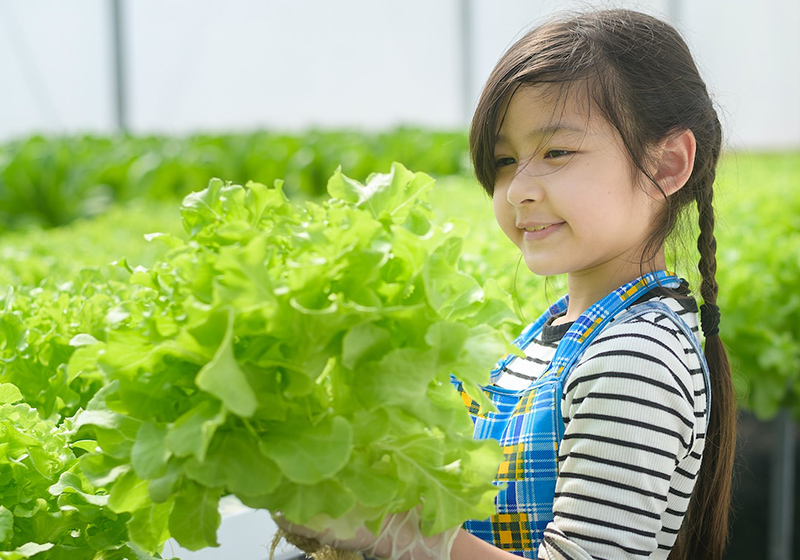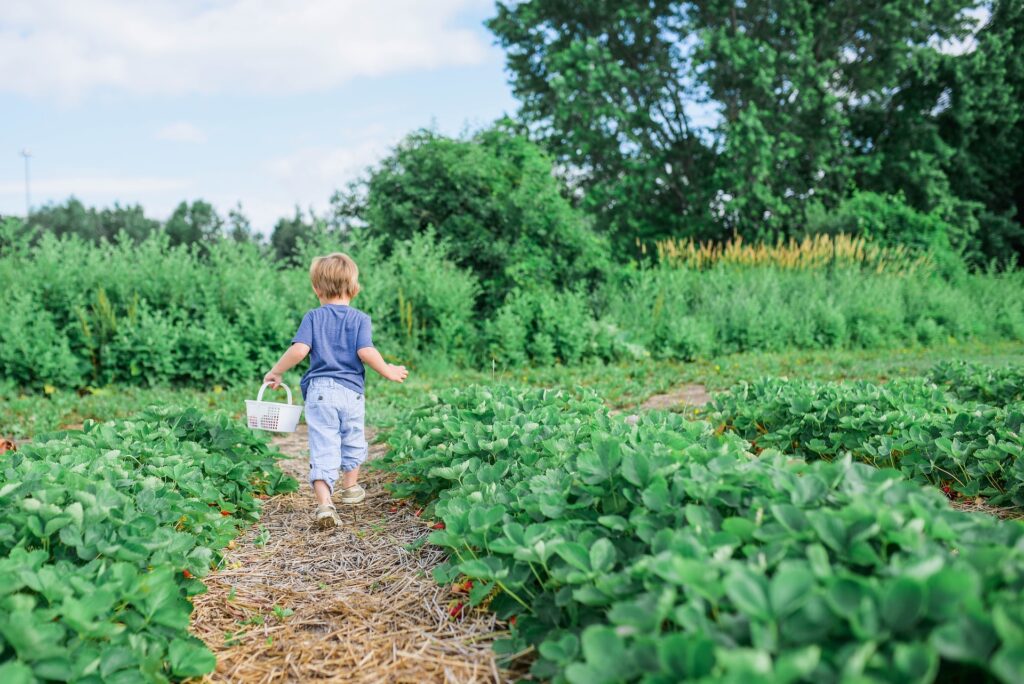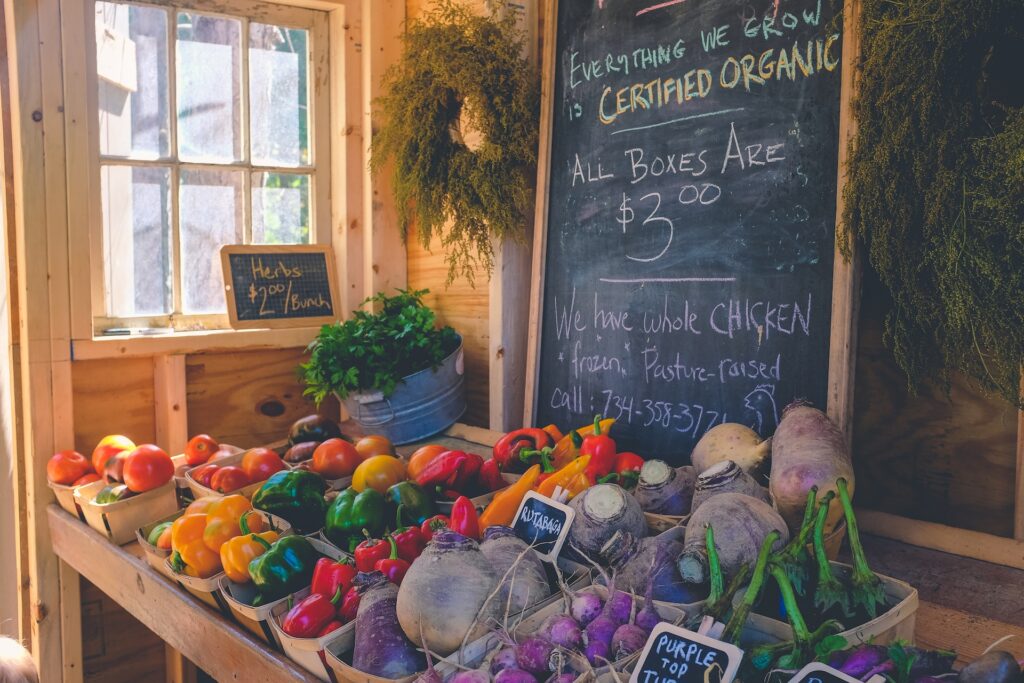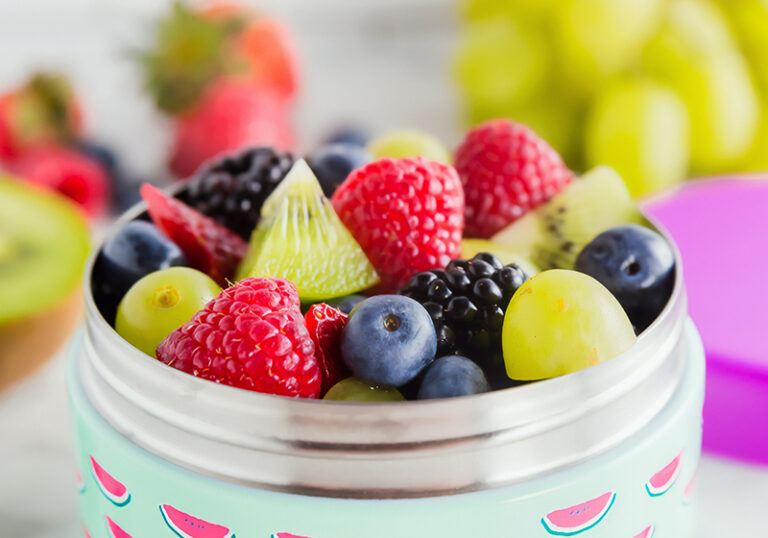How to Get Your Toddler to Eat Veggies for Picky Two Year Olds
As a family that makes eating healthy a priority we were able to get our two year old to love all types of food including broccoli and I want to share my favorite methods you can use to get your toddler to eat veggies too.
I am not a medical professional. I’m not a psychologist. Everything I am sharing with you is from my personal experience as a mom and how I successfully was able to get my toddler to LOVE veggies.

Before having kids I never used to pay attention to what the children around me were eating but once I had my own child I quickly realized how normalized processed foods were in EVERYONE’S diet including toddlers.
If we are influenced by the people, places and experiences around us, how do I get my child to eat a diet that I consider healthy?
It’s hard to accomplish when the majority of children and adults around us eat a diet that focuses on connivence rather than quality food.
When we are overworked and tired that last thing we want to do is spend hours in the kitchen, but it doesn’t have to be so overwhelming.
This post may contain affiliate links, which means I’ll receive a commission if you purchase through my links, at no extra cost to you. Please read full disclosure for more information.
How do you get your toddler to eat vegetables?
The answer obviously isn’t simple because I also found myself struggling to get my toddler to enjoy whatever I put in front of her.
The toughest part was putting in the extra work to make a homemade meal only for them to refuse to eat it and throw a tantrum hoping to get something else.

You have to use a combination of strategies to get your toddler to eat veggies.
Yes, MULTIPLE strategies.
I am sure you have tried a dozen different recipes and found nothing to be successful.
The key to getting your toddler to eat veggies isn’t just about finding a way to make them taste good but creating an environment that makes eating veggies part of the normal routine.
1. Parents. Eat your veggies too!
As much as we don’t realize as parents our children watch our every choice, hear our every word and mimic our every movement.
How many times has your toddler come up to you and asked,
As parents we have to set the example by being the example. I find that the healthier I eat the healthier my toddler eats too.
Without making it a big deal or pointing it out specifically, my toddler just out of curiosity wants to see what’s on my plate.

WE HAVE TWO RULES:
1. My Toddler Eats Whatever I Eat
2. Whatever I Feed My Toddler I Have to Eat Too
I cannot force my child to eat something I wouldn’t eat myself.
I also cannot expect them to not eat something that I am eating right in front of them.
The accountability and standard helps shift the change in not only your child but the entire family.
2. Make one meal for the entire family.
Don’t get stuck into the trap of separating meals and allowing your children to have something different. Every time I allowed my toddler to have a different dinner it was always an unhealthier and easier to prepare option.
When the entire family eats from the same food it is a great opportunity to show your children that eating certain foods is expected of them.
Although the transition may be tough at first, it will also save you the headache of trying to prepare multiple meals just for dinner.
COOKING TIP: When preparing dinner cut everything to a size that is suitable for toddlers to eat. This way you will only have to chop once.
3. Get them involved in preparing meals and snacks.

This helped us a TON when we first transitioned our toddler into eating more vegetables. Allow your kids to get involved by cutting their own food with a toddler safe knife or toddler kitchen step stool to be involved in any way that they can.
My toddler loves to be involved and in-charge. Take advantage of their curiosity and let them get comfortable around veggies the old-fashioned way!
4. Start a vegetable garden.

Starting a vegetable garden with your toddler is not necessarily about having a backyard farm as much as it’s about teaching your child about food.
Let your child see the hard work. Let them water the garden. My toddler has been holding a hose since the moment she could walk and her interest for vegetables only grows with each season.
We are currently watching our tomatoes grow and the excitement of making homemade ketchup has allowed my child to see the entire process from seed to her favorite condiment. Every day she asks if we can go look at the peppers growing too.
Part of the struggle with getting your toddler to eat veggies is to just normalizing them into their everyday meals. Eventually, they will give in.
5. Don’t give in. Set new rules and standards.
Your kids are going to push back against vegetables especially if they’re not used to having it in their diet. It’s our job to push back.
This is where some tough loves come in.
Figure out what your new rules are and stick to them. The only way I am successful with my toddler is when there is no wiggle room.
- You don’t need to finish your plate. Just eat until your full.
- If you don’t finish your meal, that is what you will eat if you are hungry again before the next meal/bedtime.
- Whatever is put on your plate is all you are being offered. No changes.
- If you whine or throw a tantrum over your food, you lose a toy for the rest of the day.
6. Take your child to a farmer’s market.

We have been taking our toddler to the local farmer’s market since she was born.
It’s an unexpectedly fun place for kids. On our way to the market we will usually talk about “what is a farmer?” and get her interested in the experience before we even arrive.
We like to let her pick out new fruits and vegetables that look appetizing to her. When we go home, we look up a new recipe and get her involved in the cooking process.
It’s the experiences that they pick up on that can change their attitude about what they eat.
7. Try New Recipes.
If you love to cook and want to explore different flavors with your kids, get a cook book designed for the entire family!
Let your toddler look through the recipes and point at any pictures that look appealing to them.
Cookbooks also encourage toddler to eat veggies. Without taking too much of your own personal time, you can find simple ideas to keep your toddler eating what you want them to eat.
8. Watch your wording.
At the end of the day, I realized that one of the subtle ways my toddler was starting to refuse veggies was because of how we were talking about it.
We would say things like,
- “If you eat your dinner we will give you a yummy treat before bed”
- “You have to eat your food or you wont get (whatever her favorite snack is)”
- “I just spent 30 minutes making you something healthy, you have to eat it”
The days can get so stressful sometimes you often forget to be careful what you say or what it may imply.
Treating a healthy meal like a chore is not going to make your child want to eat. They are going to treat it like a chore and make every excuse not to do it.
Offering a “yummy snack” as a reward for eating dinner implies that dinner isn’t yummy because it’s healthy.
We now are more self-aware about how we communicate when we are talking about food.
9. Limit snacks and processed foods at home.

We use our home as a place to eat and make healthy choices.
When we are traveling or out at a restaurant, that is an opportunity for kids to eat what they enjoy not necessarily what is best.
At home, we have almost no processed foods making it easier not to just hand our toddler something quick and simple.
Taking Responsibility of Our Children’s Habits
It really comes down to how we parent our children and accepting the responsibility that some of our choices are going to enable poor behavior.
Once I realized that I am the reason my child does or does not eat healthy, it really made me rethink my parenting strategies.
Some of our parenting choices could work well on most children but not ours, and we have to accept it and try again.
Although it may be a battle now, our children will be thankful when they can look back and see they were loved and their health was important.






